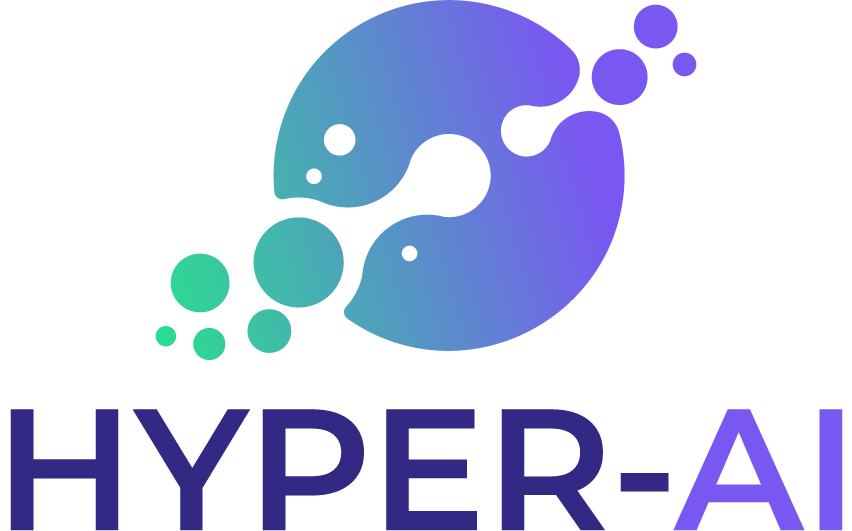HYPER-AI overarching objective is the development of the required mid-tier and the necessary cloud-edge connectors that will enable the seamless integration of heterogeneous computing environments and the establishment of new-generation interoperable and adaptive hybrid computing ecosystems exploiting cognitive clouds and edge intelligence beyond today’s limitations. HYPER-AI objectives are listed as follows:
- Design and implement the HYPER-AI open architecture that will empower swarms of nodes to develop collaboratively collective intelligence, bringing the computation closer to the edge, utilizing decentralized AI/ML-based intelligence.
- Ensure dynamic cognitive and informative optimized decision-making across all phases of the application lifecycle (design, execution, maintenance) through continuous inference resources.
- Develop autonomic system entities ensuring autonomous Smart-Nodes and rapid coordination of Smart-Nodes swarms during application design and runtime phases.
- Promote the openness of outcome by safeguarding the open nature of the HYPER-AI tier of services and architectures developed/used, guaranteeing interoperability, accessibility and international cooperation.
HYPER-AI aims to have the impact that is depicted in the following list:
- Impact 1: Improved European leadership in the global data economy. HYPER-AI aims to facilitate the access of stakeholders from multiple industries to the new data economy, and it does so with a strong European consortium that aims to improve the Improved European leadership in this context. The status of the European market in terms of IoT, edge and cloud penetration requires an urgent uptake to achieve having a leading role worldwide, in the new data economy that has emerged.
- Impact 2: Maximized social and economic benefits from the wider and more effective use of data. The great evolution of cyber-physical systems, and the ubiquity of the Internet of Things (IoT) and Artificial Intelligence (AI), have greatly increased the intensity of data collection. Multiple application areas are concerned by this increased data collection and are longing for profiting from them in an efficient way. Indicatively, health care, social media, smart communities, industry, manufacturing, education, construction, agriculture, water management finance/insurance, tourism, and education, are some of those areas.
- Impact 3: Reinforced Europe’s ability to manage urgent societal challenges (e.g. data for crisis management, digital for clean energy). The European Commission has identified the need for an important investment effort in the development of data technologies that is needed to support the use, interoperability and analytical exploitation of EU-wide common data spaces targeting essential economic sectors and areas of public interest. The recent example of the COVID-19 crisis demonstrated how essential it is to master data technologies to address our societal challenges. The accent that HYPER-AI puts in the decentralized way of handling data and performing computations fits hand in glove with the requirements of these challenges.
M4D is responsible for the management of scientific and technical aspects of the project and has a critical role in providing dedicated services on monitoring the solution’s network and neglect the identified outliers acting as an anomaly curation mechanism. Hence, the service will provide a quality data to the system as an intermediate layer of processing to improve its overall performance.
